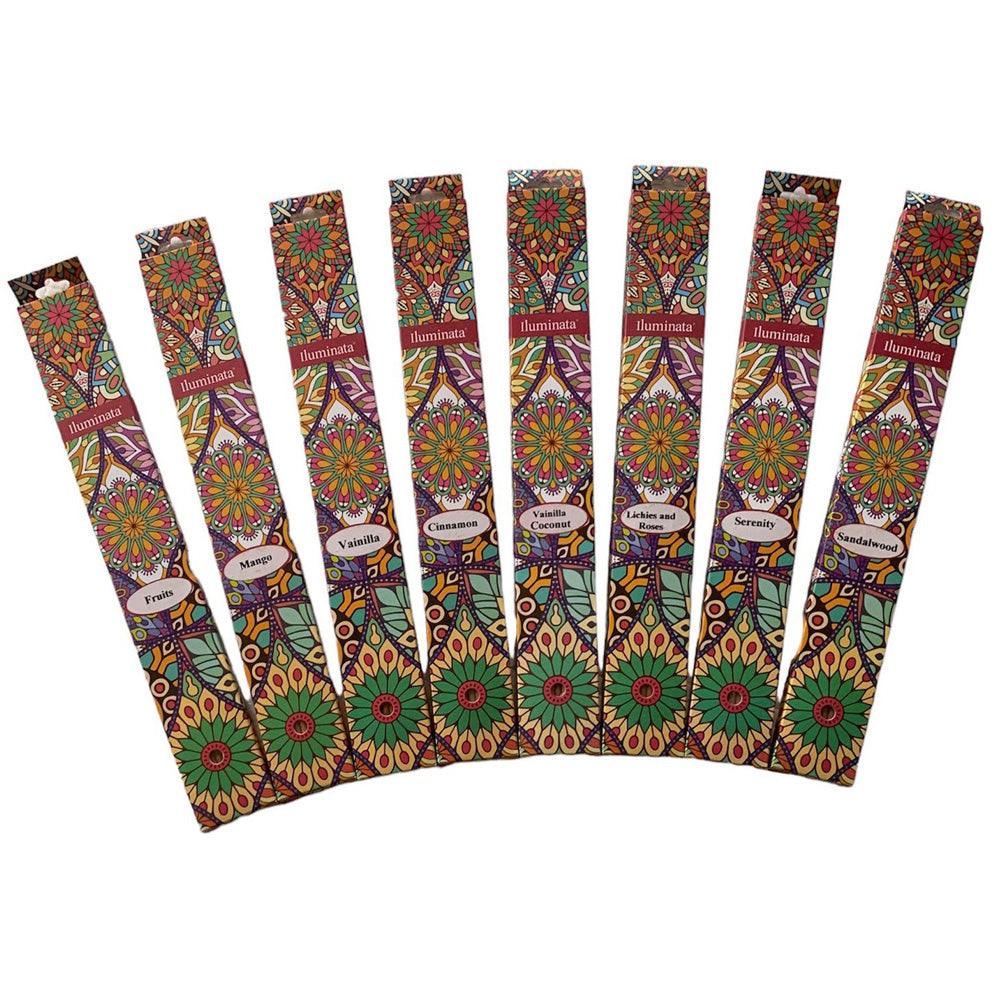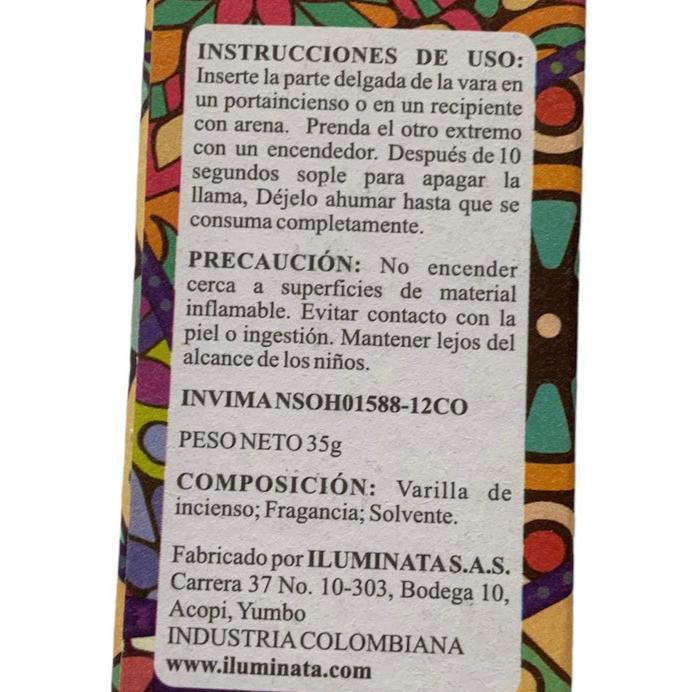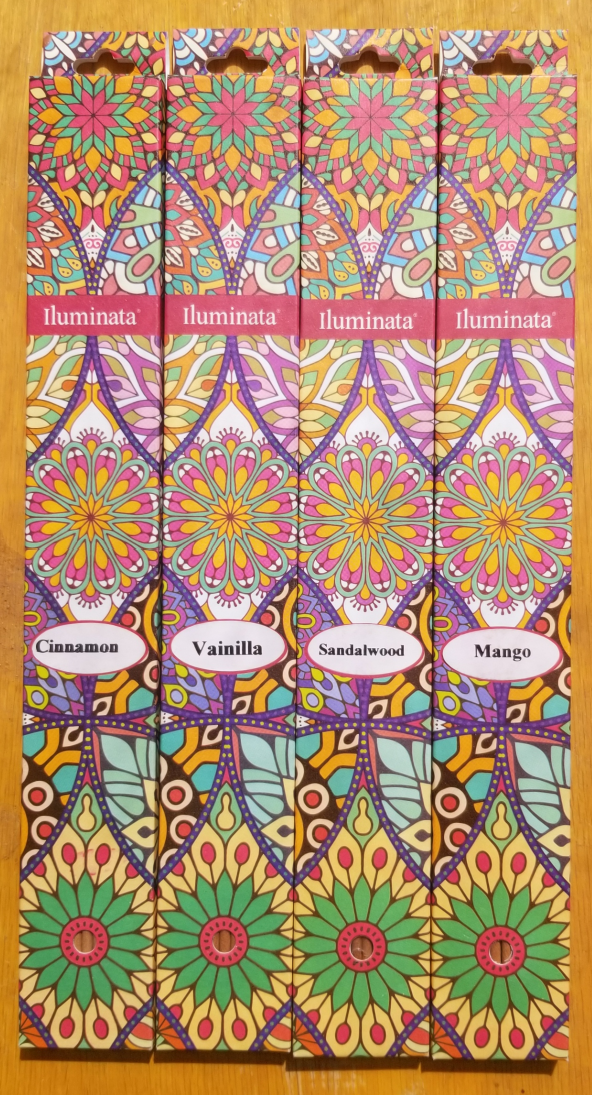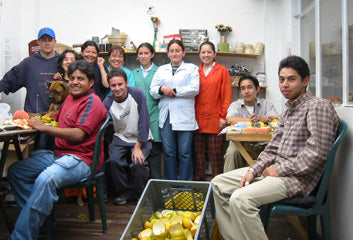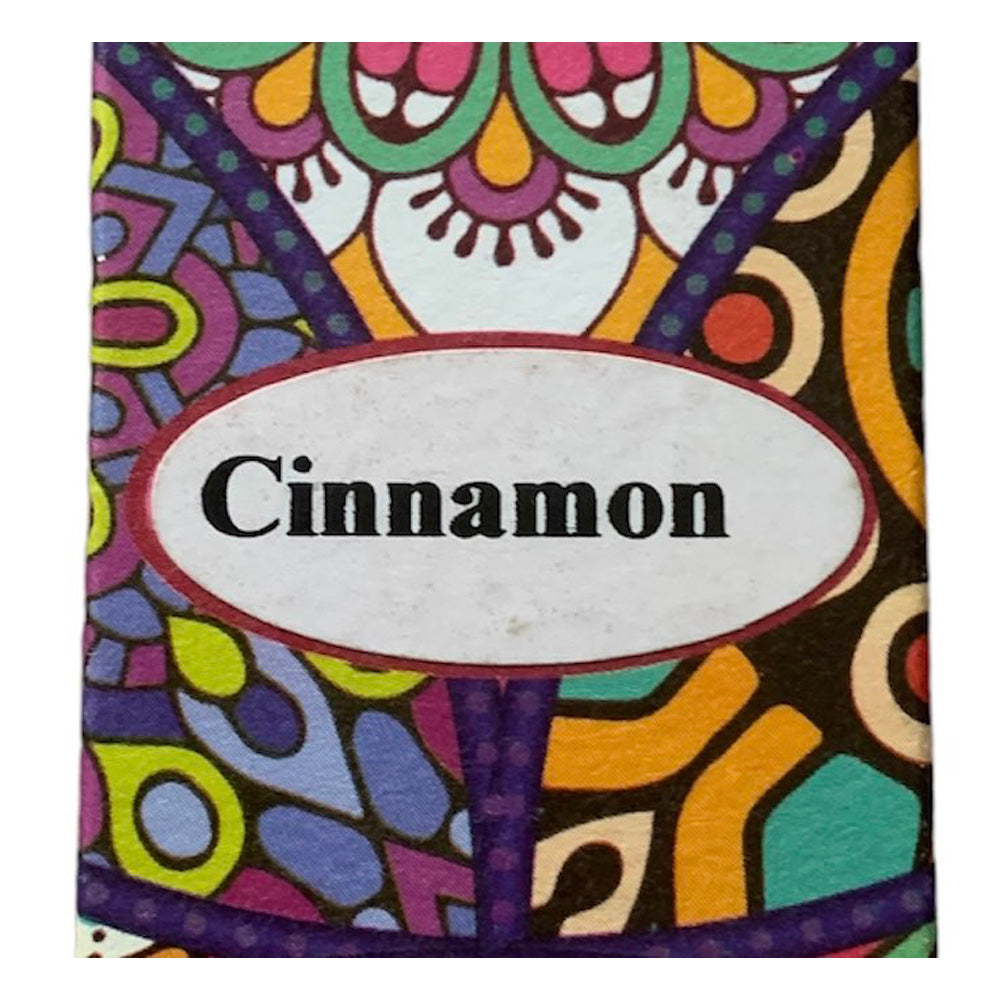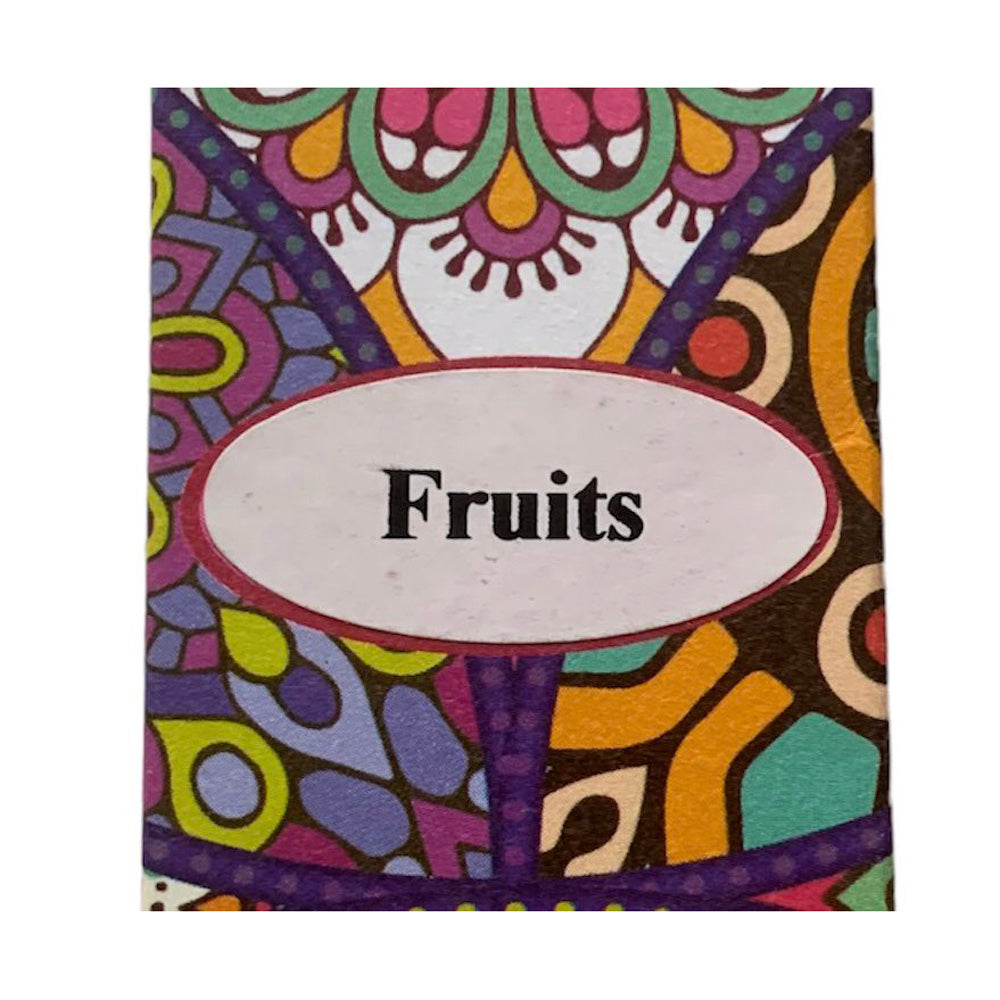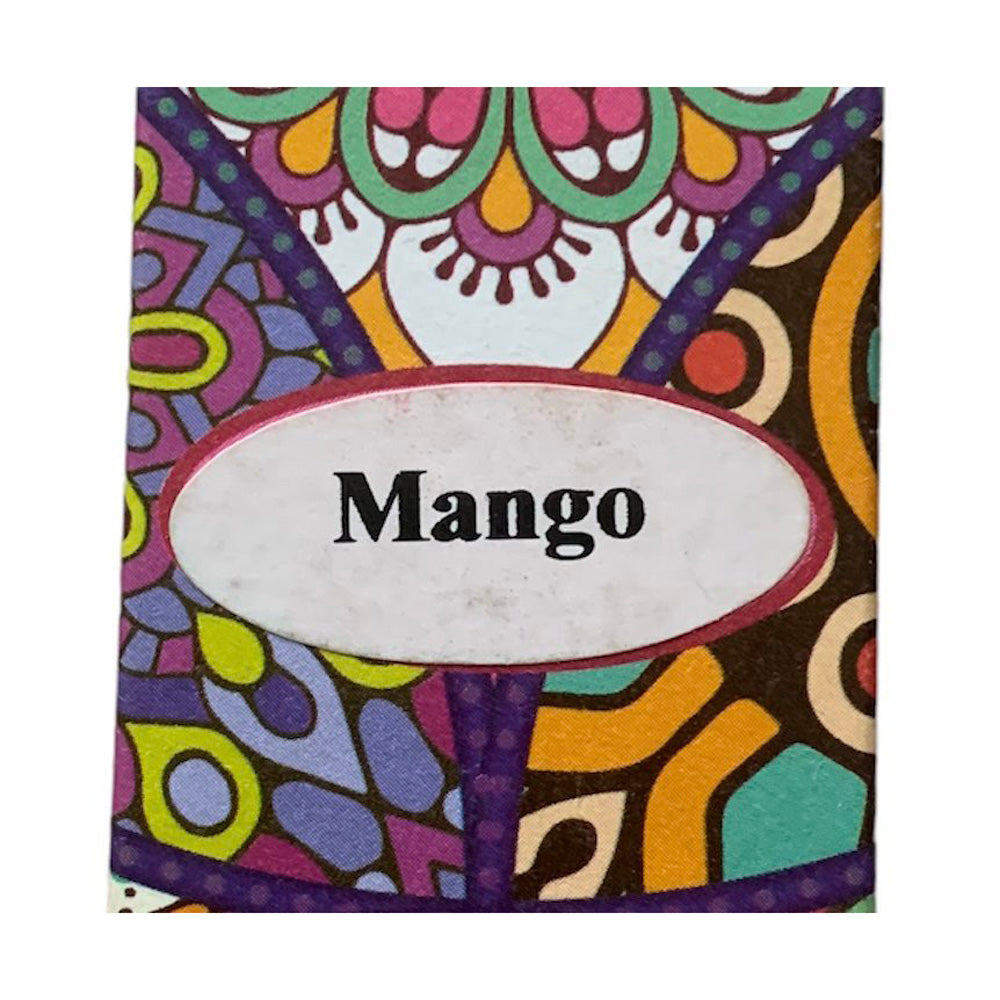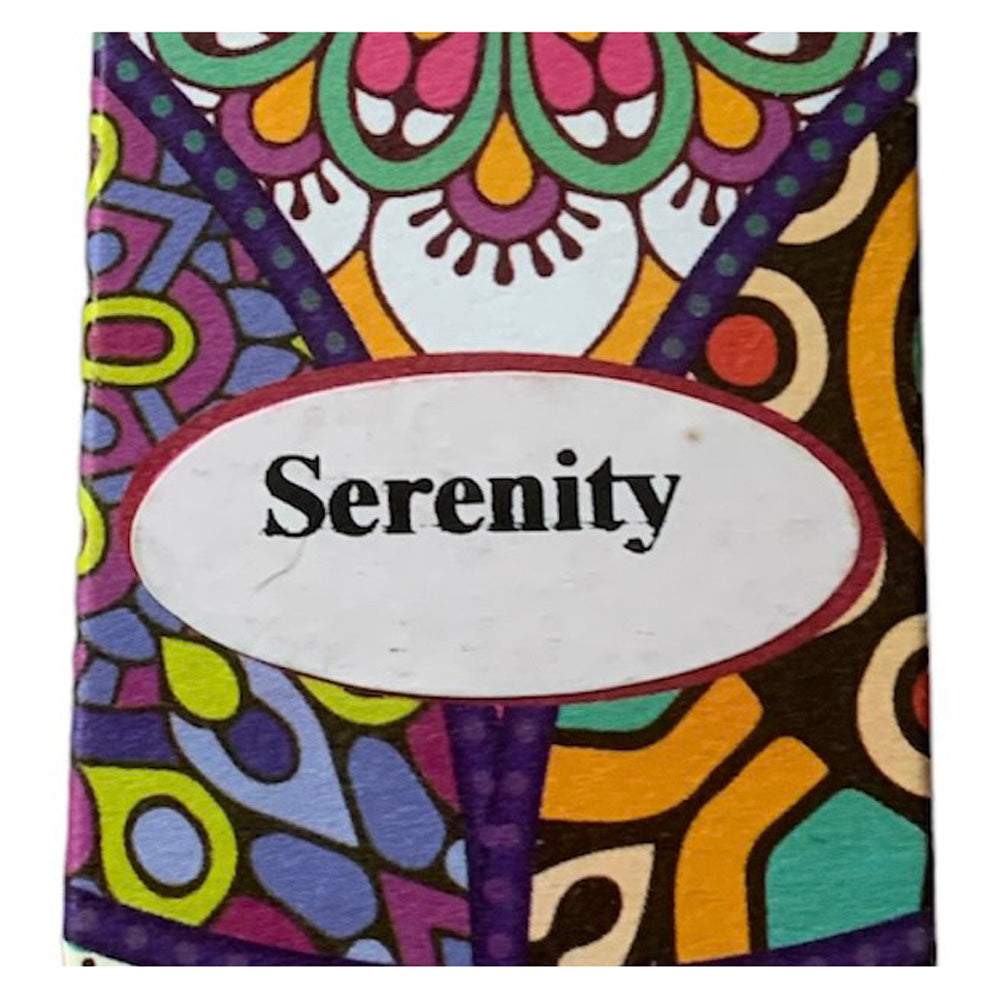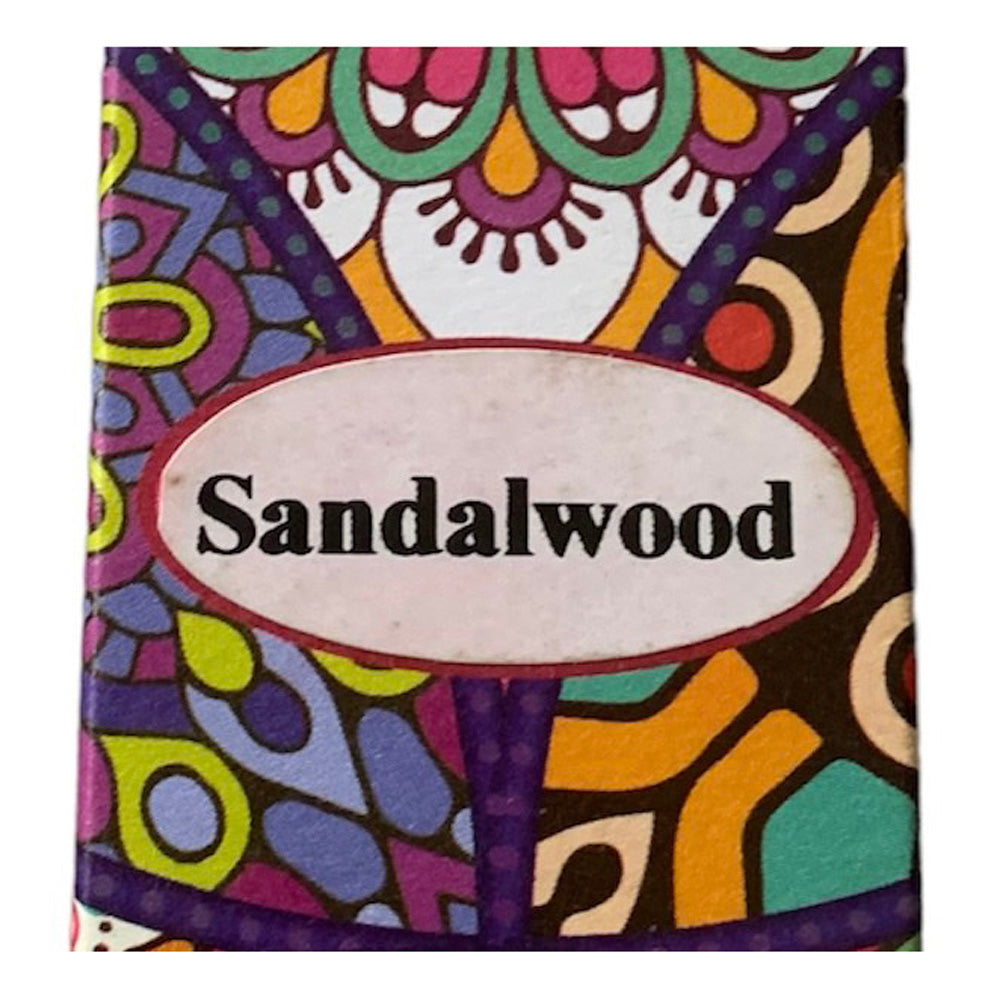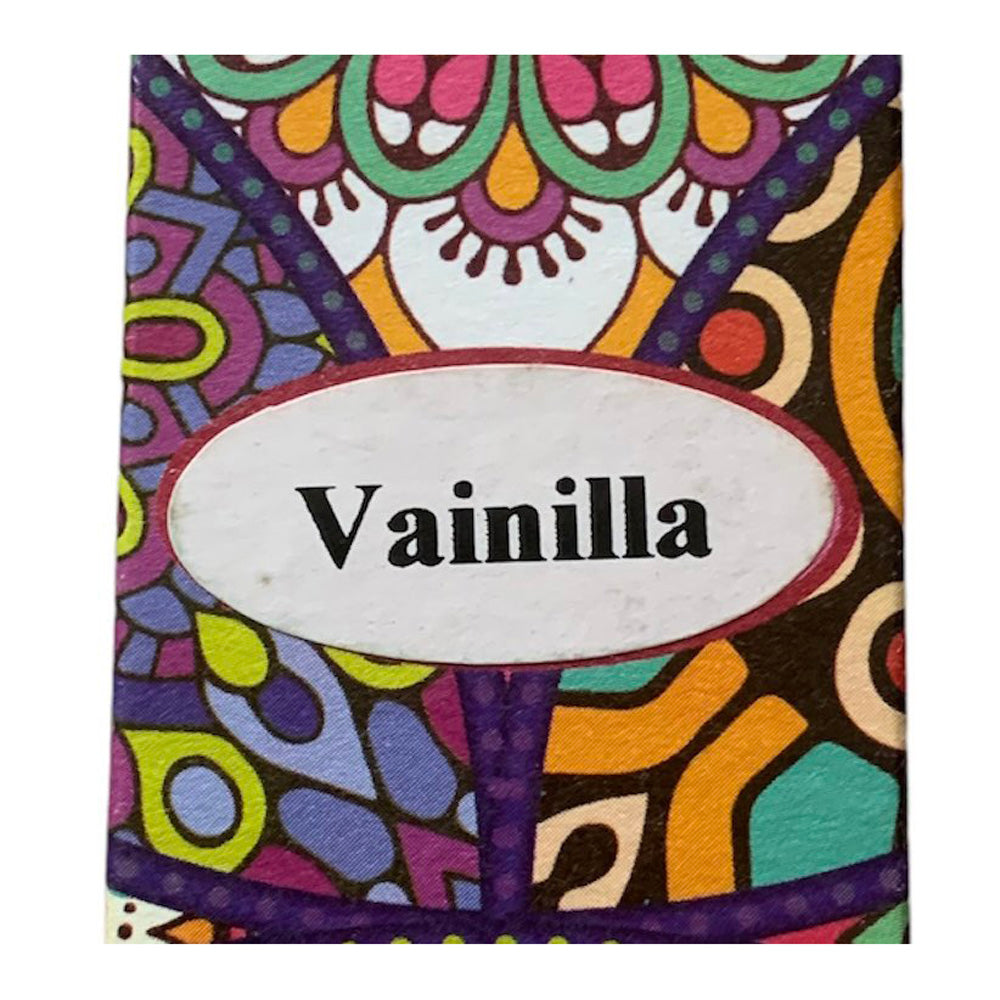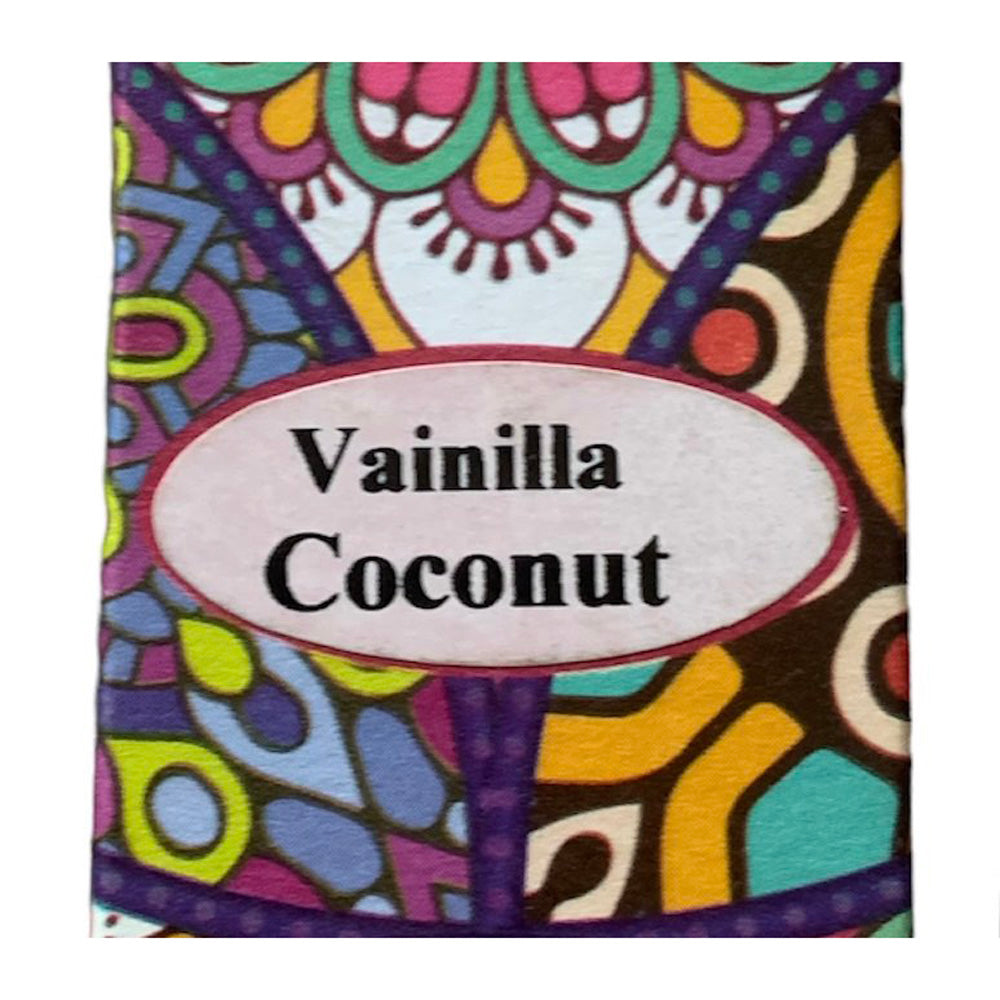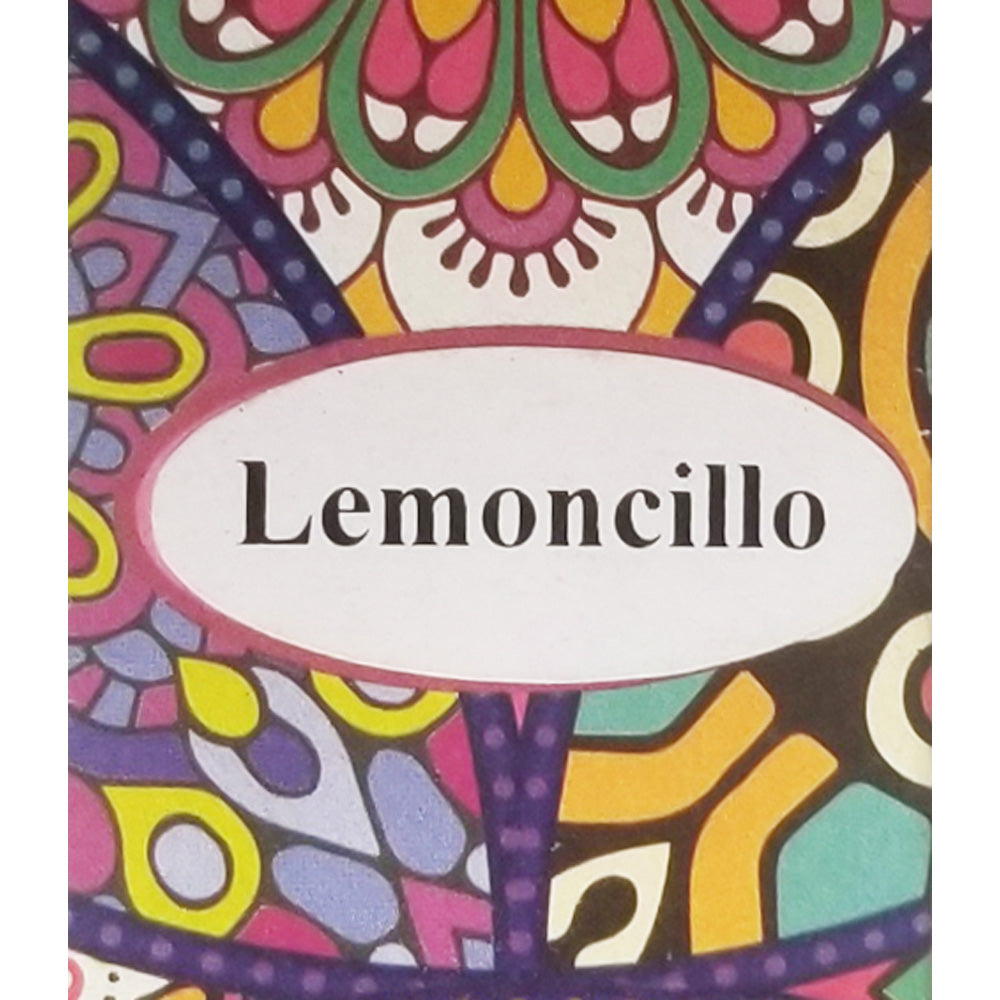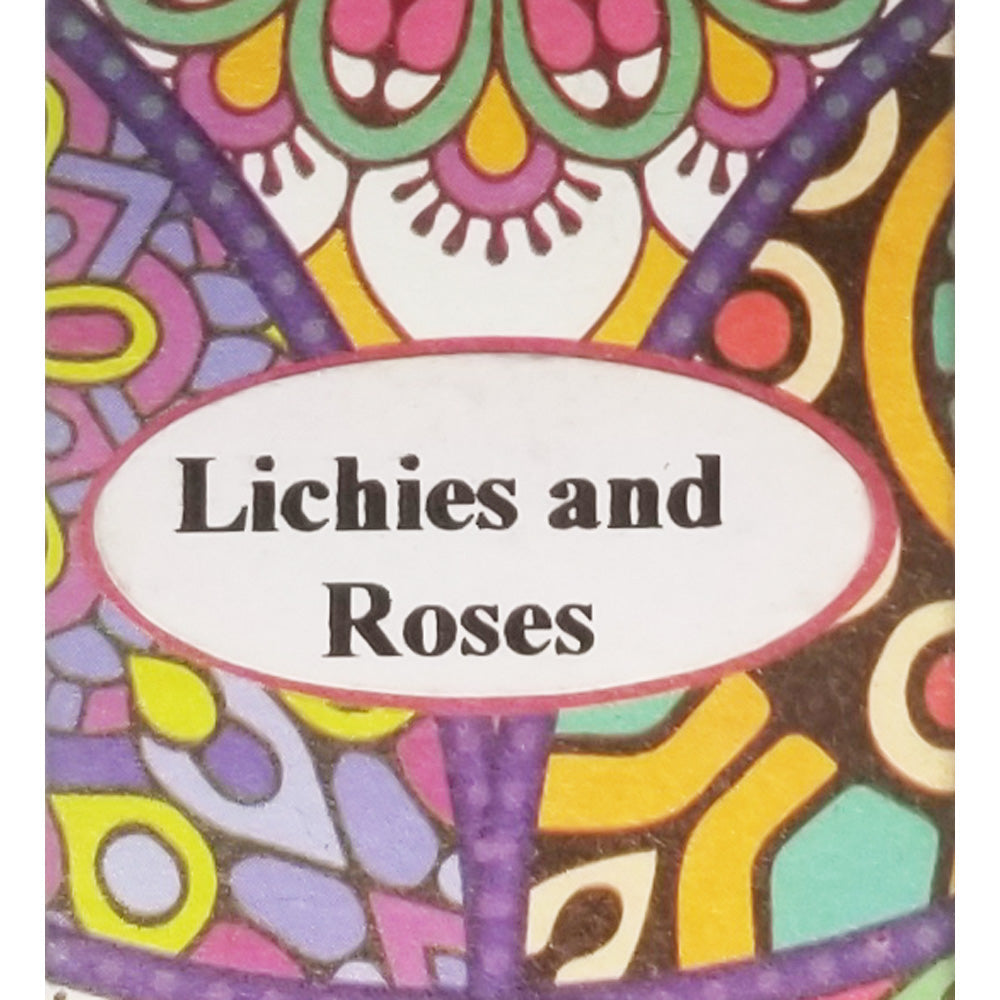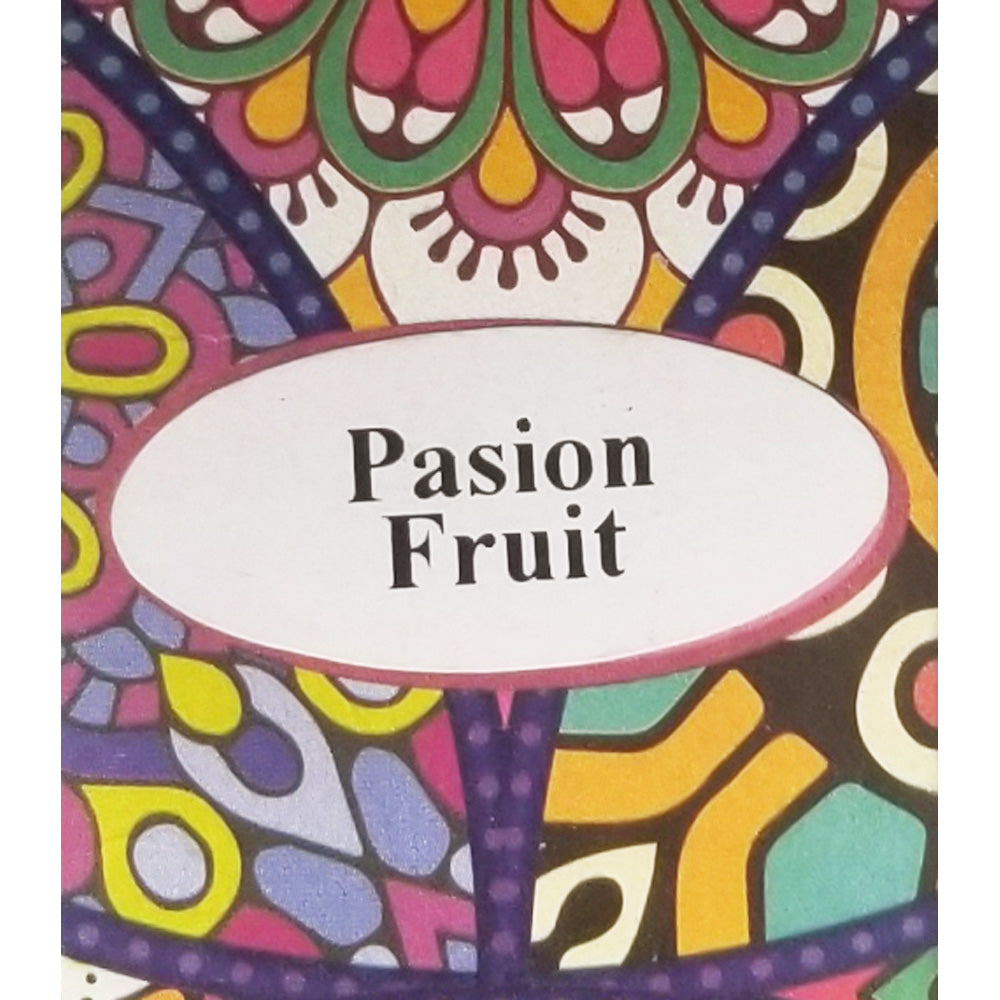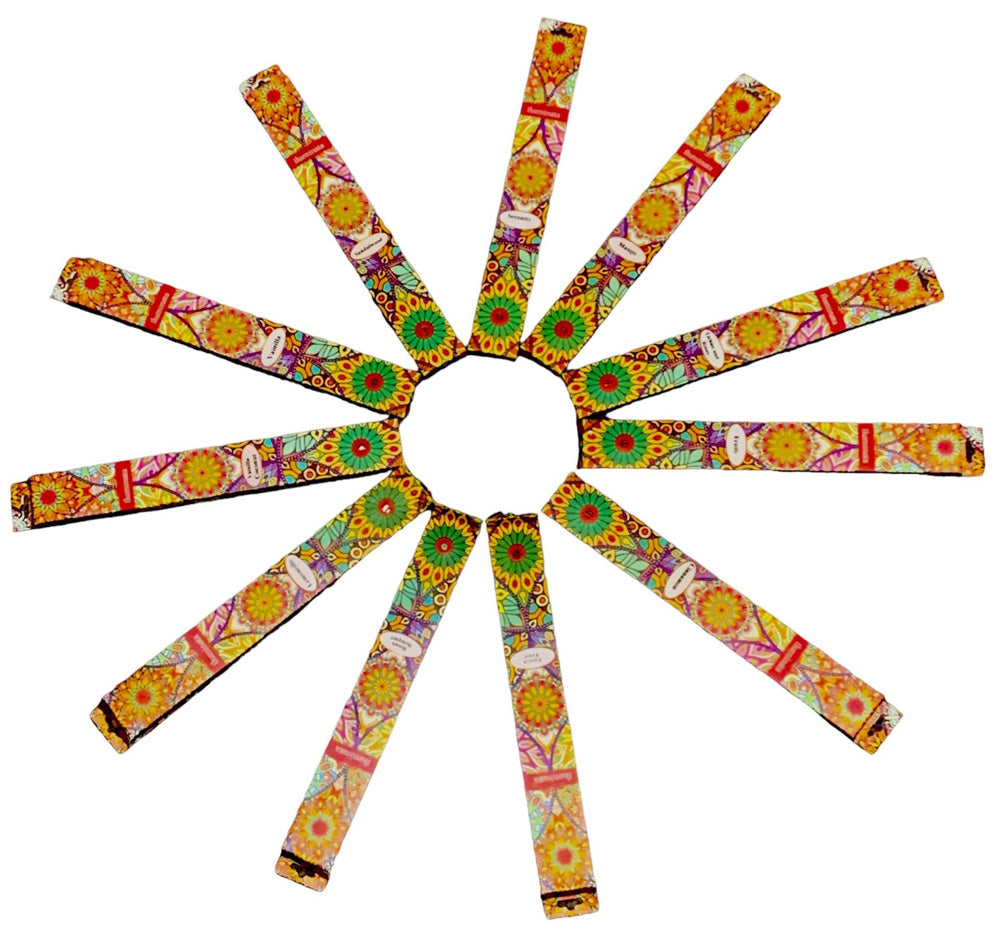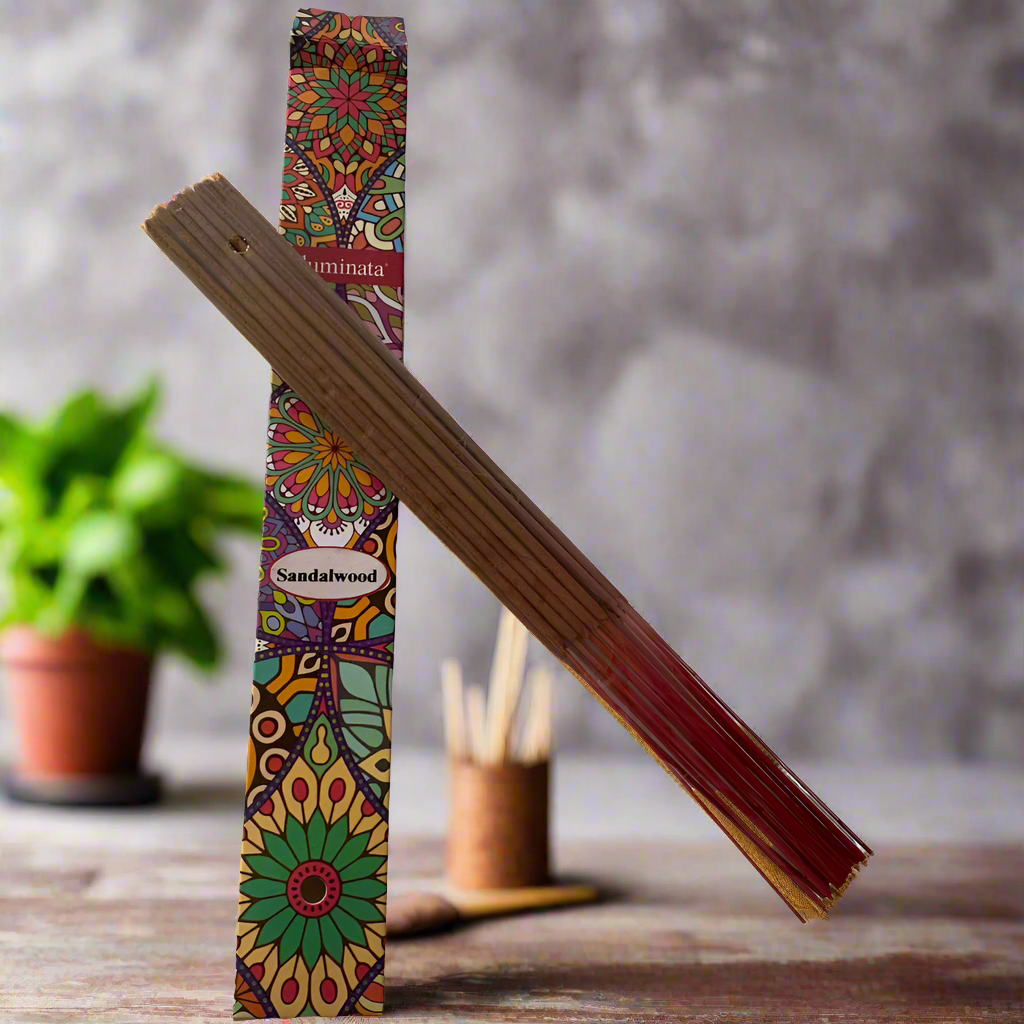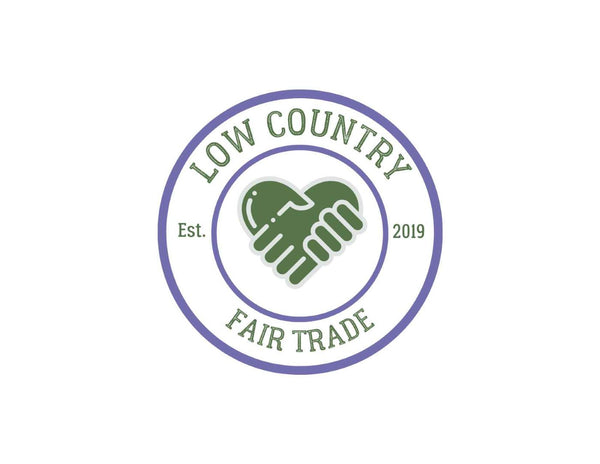OWP
Handmade Incense- Vegan- Illuminata- 25 Sticks Per Box - 11 Scent Choices
Handmade Incense- Vegan- Illuminata- 25 Sticks Per Box - 11 Scent Choices
Couldn't load pickup availability
Awaken your spiritual journey with Iluminata Incense! Handcrafted with love and inspired by the artisan tradition, these vegan-friendly incense sticks provide a beautiful and inviting atmosphere with their natural purifying and sanctifying effects. Invite enlightenment into your home or meditation practice today!
Each box of incense contains 25 sticks and is available in the following 11 scents.
|
Serenity |
An exotic mixture of ripe melon and a hint of orange, complemented by notes of lily of the valley. |
|
Fruits |
The intoxicating aroma of fresh blackberries sprinkled with citrus notes and sweet coconut milk. |
|
Vanilla Coconut |
A lush fragrance of tropical coconuts with hints of banana, cherries, peaches, and light hints of Cognac, sweet vanilla, and caramel. |
|
Mango |
A sweet tropical blend of ripe mangoes with a hint of citrus in the background. |
|
Sandalwood |
The woody scent of sandalwood mixed with cedar, with subtle hints of rose and jasmine. |
|
Cinnamon |
The classic aroma of spicy and sweet cinnamon sticks is rounded off with warm notes of cloves and wood in the background. |
|
Lychees and Roses |
The Lychee fruit is considered by the Chinese as a symbol of romance and love. Its bittersweet aroma blends perfectly with that of rose petals. |
|
Vanilla |
The pure tropical vanilla fragrance calms the spirit and reduces stress and anxiety. |
|
Roses Bouquet |
Roses and Fresh Air |
| Lemoncillo |
Fresh Sweet Lemon Scent |
|
Passion Fruit |
Fresh Passion Fruit Scent |
Share
About the Artisans
About the Artisans
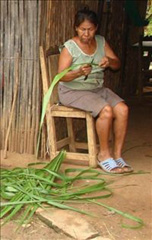 Joyeria Semilla meaning Seed Jewelry is a small fair-trade workshop in the Andean town of Villa de Leyva, Colombia. Girasol Taborda, a local artisan and social entrepreneur, started the workshop in the mid-1990s.
Joyeria Semilla meaning Seed Jewelry is a small fair-trade workshop in the Andean town of Villa de Leyva, Colombia. Girasol Taborda, a local artisan and social entrepreneur, started the workshop in the mid-1990s.
Joyeria Semilla’s objective is three-folds; to create new jobs, revive Colombia's handicrafts sector and to motivate locals to better manage their natural resources. The organization works primarily with socially and economically disadvantaged youths, single mothers and people with disabilities in the area. The company offers free training in product design, technical training and marketing to new members. Joyeria Semilla has trained them in the craft of jewelry-making.
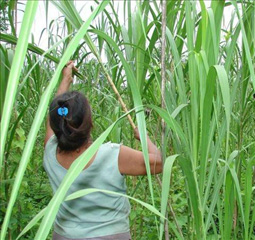
Caña Flecha or “Gynerium Sagittatum” is a locally found palm tree in the regions of the Caribbean coast. The leaves from this plant are used for making jewelry, woven hats, bags and baskets. The Zenú Indians were and their descendants inherited the tradition of picking veins of the green palm leaf for weaving. These veins were made into woven hats and other products for their personal use.
The Zenú culture is said to have existed between 200BC to1600AD. With the arrival of the colonizers in the 16th century, the indigenous community declined of unknown reasons. Today a very small population remains that claims the inheritance of the almost extinct Zenú tribe. Known for their skills in the construction of major waterworks, canals and irrigation system along with being skilled goldsmiths, examples of their accomplished craftsmanship are found in various museums around the world. Their larger means of subsistence were hunting, farming, fishing and trading.
Caña Flecha is found in abundance in the region, and hence makes for a sustainable and naturally available raw material for these products. Every bit of the plant is utilized – from using in building walls and roofs in houses to food for cattle and medicinal purposes. It is from the central vein of the leaf that the fibers for weaving are obtained. After the hard surface is peeled off, the fibers are left in the sun to dry and undergo a natural tinting process; these fibers are barely about 1 millimeter in thickness and hence call for a lot of skill and patience to weave with. The dried fibers are then processed for natural coloration - some are boiled with lemon to whiten them and some are treated with mud and boiled with plantain leaves to blacken them. The designs are based on ancient motifs and mathematical representations, which are inspired by the early Zenú culture.
